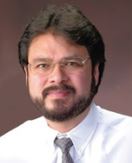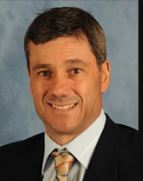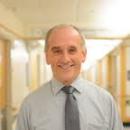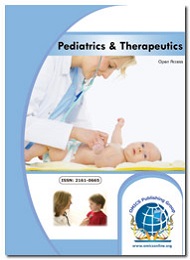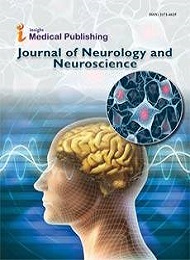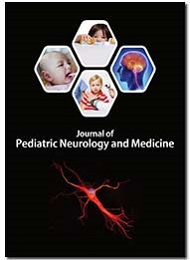Theme: Advancements in Diagnosis, Prevention and Management of Pediatric Diseases
Pediatrics 2022
We welcome you and appreciate your participation at the, World Congress on Pediatric Neurology and Neurosurgery which is going to be held during October 19-20, 2022 Barcelona, Spain and will be organized around the theme "Advancements in Diagnosis, Prevention and Management of Pediatric Diseases".
Pediatric Neurology Congress 2022 will be operated by world class experts in the field of Pediatric Neurology and Neuroscience, International symposiums, B2B meetings and workshops will also be organised to discuss the specific topics in the field of Pediatric Neurology like Clinical Neurophysiology, Neurosurgery, Neuro Muscular Disorders, Neuro Infectious Diseases, Pediatric Pediatric Neurology, Neuropathology, Brain Tumour and Neuro-oncology and many more. The conference is aimed to identify the genetic determinants of common disorders to understand the mechanisms underlying human cognition. Neurogenetic Disorders are common among developed and developing countries. Genetic disorders and congenital abnormalities occur in around 2-5% of live births accounting for approximately 30% of pediatric hospital admissions in many places in the world. Neurogenetic conditions are generally chronic, long-term, and incurable. In Netherlands approximately 10% of patients with neurological conditions have a single mutated gene as the basis for their disease. Furthermore, when polygenic inheritance is considered that is, the interplay between multiple genes and environment, a much larger proportion of neurological diseases are included. Dementia is strongly linked with age, and the Netherlands and other European countries have an increasingly ageing population. Currently 16% of the European population is over 65, with this figure expected to reach 25% by 2030. In the Netherlands it has been estimated that dementia alone costs the economy £17 billion a year.
Student Poster Competition is organized at Conference, to encourage students and recent graduates to present their original research which will be later published in the Conference Series LLC Journals. All accepted abstracts will be presented at the poster sessions during the conference. Conference Series LLC provides an opportunity to present e-Poster for all the students who cannot attend the conference with abstract published on the website with DOI number Live Streaming is a value added service offering to speaker at Conference Series LLC Conference.
Business networking is an avenue for vendors to have network and B2B meetings with “Top scientists and colleagues” and with an effective low cost marketing method for developing sales and opportunities and contacts, based on referrals and introductions either face-to-face at meetings and gatherings, or by other contact methods such as Telephone, E mail, Digital and Increasingly social and business networking websites.
Pediatric Neurology Congress 2022 is intended to honor prestigious award for talented Young researchers, Scientists, Young Investigators, Post-Graduate students, Post-doctoral fellows, Trainees, Junior faculty in recognition of their outstanding contribution towards the conference theme. The Young Scientist Awards make every effort in providing a strong professional development opportunity for early career academicians by meeting experts to exchange and share their experiences on all aspects of Pediatric Neurology.
Young Research’s Awards at Pediatric Neurology Congress 2022 for the Nomination:
Young Researcher Forum - Outstanding Masters/Ph.D./Post Doctorate thesis work Presentation and only 25 presentations acceptable at the Pediatric Neurology Congress 2022.
YRF Registration benefits:
- Young Scientist Award recognition certificate and memento to the winners.
- Pediatric Neurology Congress 2022 provides best Platform for your research through oral presentations.
- Learn about career improvement with all the latest technologies by networking.
- Provide an opportunity for research interaction and established senior investigators across the globe in the field of Pediatric Neurology.
- It’s a great privilege for young researchers to learn about the research areas for expanding their research knowledge.
YRF Registration Deadline:
- Till August 30 – $399
- Till September 30 – $499
- Till October 19 – $599
Why to attend?
Pediatric Neurology Congress 2022 will bring together experts like Neuroscientists, Clinicians, Neurogenetics, Neurologists, Psychiatrists, Medical practitioners, Care specialists, academic professionals and students from all over the world to share an interest in the genetic pathways underlying neurological disorders, techniques to identify those genetic pathways and the use of genetics and genomics as tools to develop therapeutics.
The aim of the conference is to provide a platform to academicians and practitioners from multiple disciplines to debate and deliberate on social change that is encompassed by innovation and technology.
Target Audience
· Neurologists and Directors
· Physicians
· Neuroscientists
· Specialists
· Researchers
· Health care professionals
· Professors
· Industrial Experts
· Neurosurgeons
· Psychiatrist
· Nutritional Scientists
· Lecturers and Students from Academia
· Students from Academia in the research of Pediatric Neurology
Track 1: Pediatric Neurology
Pediatric Neurology is a branch of medicine concerned with disorders of the nervous system. It deals with the examination and medication of all division of conditions and disorder involving the central and peripheral nervous systems, including their coverings, blood vessels and all effector tissue such as muscle. Neurological system relies heavily on the field of neuroscience, the scientific study of the nervous system. The doctor who specially designed in Pediatric Neurology is known as neurologist. The neurologist experienced to investigate or diagnose and treat a neurological disorder that affects the brain, spinal cord, and nerves. Neurologists do not implement surgery if any patient requires surgery they refer to neurosurgeons.
- Central nervous system
- Peripheral nervous system
- General Pediatric Neurology
- Cerebrovascular disease
- Behavioral Pediatric Neurology
Track 2 : Clinical Neurophysiology
Clinical neurophysiology is a therapeutic specialty that studies the central and peripheral nervous systems through the documentation of bioelectrical activity, whether spontaneous or stimulated. It involves the study of both pathophysiology along with clinical methods used to diagnosis both in peripheral and central nervous system. Examinations in clinical neurophysiology field are not limited to tests conducted in a laboratory. Tests which are conducted are concerned with measuring the electrical functions of the brain, nerves in the limbs & muscles and spinal cord.
- Electromyography
- Electroencephalography
- Evoked potentials
- Polysomnography
- Intraoperative monitoring
Track 3: Neurosurgery
Neurosurgery or neurological surgery is the medicinal specialty concerned with the prevention, examination, surgical treatment and improvement of disorders which affect any portion of the nervous system including the brain, spinal cord, peripheral nerves, and extra-cranial cerebrovascular system. A doctor who specializes in neurosurgery is known as Neurosurgeon they are not only brain surgeons, but they can medically trained neurosurgical specialists who can also help patients suffering from back and neck pain along with other illnesses ranging from trigeminal neuralgia to head injury and Parkinson's disease.
- Vascular neurosurgery
- Stereotactic neurosurgery/ functional neurosurgery
- Oncological neurosurgery
- Skull base surgery
- Spinal neurosurgery
- Pediatric neurosurgery
Track 4: Central Nervous System
The Central nervous system is the part of the nervous system consisting of the brain and spinal cord. It is referred as central because it combines information from the entire body and coordinated activity over the whole organism. CNS disorders can affect either the brain or the spinal cord which conclusion in psychiatric disorders or neurological disorders. The causes of CNS diseases are the Pediatric Neurology, trauma, autoimmune disorders, infections, structural defects, degeneration and tumours. So here we target on mood disorders, neurodegenerative diseases, schizophrenia and autism. Meningitis is an almost rare infection that affects the delicate membranes called meninges that cover the brain and spinal cord. By infection or allergic reactions, inflammation of brain occurs, it is known as Encephalitis.
- Bipolar disorder
- Neuropathic pain syndromes
- Accessory nerve disorder
- CNS disorder and structural defects
- Facial nerve paralysis
- Meningitis
- Therapies for genetic disorders
Track 5: Pediatric Pediatric Neurology
Pediatric Pediatric Neurology happens mostly in youngsters or teenagers. Pediatric Neurology influences around 6 in 100,000 youngsters. Pediatric Neurology in kids is of three essential sorts in whom two are ischemic Pediatric Neurology in which blockage of veins outcome in absence of blood stream and harm. At the point when a corridor is blocked, the term blood vessel ischemic Pediatric Neurology (AIS) is utilized. At the point when a vein is block, the term utilized is cerebral Sino venous thrombosis (CSVT). In the third shape, haemorrhagic Pediatric Neurology (HS), the vein crack as opposed to being blocked. The most known signs and side effects of Pediatric Neurology incorporate the sudden appearance of failing or deadness of the face, arm or leg, more often than not on one side of the body.
- Movement disorders (Cerebral paresis)
- Muscle diseases
- Lysosomal storage disease
- Development disorders
- Brain malformations
Track 6: Neuromuscular Disorders
Neuromuscular disorders affect the nerves that control your own voluntary muscles. Voluntary muscles are the ones which we can control by our self like in your arms and legs. Your nerve cells also called as neurons, send the messages that control these muscles. When the neurons become delicate or die, communication between your nervous system and muscles breaks down. As a result, your muscles weaken and waste away this weakness can lead to twitching, cramps, aches, pains, and joint and movement problems. Frequently it also affects heart function and your ability to breathe.
- Amyotrophic lateral sclerosis
- Multiple sclerosis
- Myasthenia gravis
- Spinal muscular atrophy
Track 7: Psychiatry and Psychology
Psychiatry is the restorative forte committed to the determination, avoidance, and treatment of the mental issue. These incorporate different maladaptations identified with disposition, conduct, comprehension, and observations. Introductory mental appraisal of a man ordinarily starts with a case history and mental status examination. Psychology is the science of behavior and minds which including conscious and unconscious conditions as well as thought and feeling. Physical examinations and mental tests might be directed examples like neuroimaging or other neurophysiological procedures are utilized.
- Psychology
- Types of psycho therapy
- Hypnotherapy
- Counselling and psychotherapy
Track 8: Spine and Spinal Disorders
Spine disorders occur in individuals irrespective of their age -spina bifida in infants to spinal stenosis in the elderly. Causes of spinal cord disorders include mainly injuries, infections, blocked blood supply, and compression by a fractured bone or a tumor. The boost in spinal disorders has been met with a leap in advancements in the diagnostic techniques. Endoscopic spine, MRI, X- rays CT and DEA are some of the generally used tools in diagnosing spinal disorders.
- Scoliosis
- Lumbar spinal stenosis
- Spina bifida
- Cauda equina syndrome
- Tumors
Track 9: Neurogenetic and Neurometabolic Disorders
Neurogenetic and neurometabolic abnormalities are disorders that affect how the brain functions. They occur in young children of all ages, races and genders. Neurogenetic disease is the umbrella term of chronic diseases which describe the brain abnormalities that occur following changes in the genes of the child and these cause certain brain cells to develop and function abnormally. In the case of neurometabolic abnormalities; these disorders result from problems in the enzymes of the body’s cells which are either unable to either use foods to produce the energy the cell needs, or get rid of the breakdown products of the foods used.
- Biochemical genetics
- Gene mutation and disease
- Neural engineering
- Genetic engineering and gene sequencing
- Cancer neurogenetics
- Huntington disease
Track 10: Neuropharmacology
Neuropharmacology is the examination of how drugs influence cellular function in the nervous system and the neural system through which they influence behavior. There are two branches of neuropharmacology behavioraland molecular. Behavioral mainly focuses on the study of how drugs that affects human behavior (neuropsychopharmacology) including the study of how drug dependence and addiction affect the human brain. Molecular neuropharmacology involves the study of neurons and their neurochemical communication with the overall goal of developing drugs that have beneficial effects on neurological function.
- Anti-anxiety drugs
- Recent drug development
- Neuroimmuno pharmacology
- Neuro chemical interaction
- Latest advancement in neuropharmacologcal therapy
- Genome wide association studies
- Biochemical genetics
Track 11: Nursing and Neuroscience
Neuroscience sometimes called as neural science, and it is one of the most specialized fields of medicine in the world. This field of drug focuses on the health of the nervous system including the brain and spinal cord. Neuroscience nurse is a nursing professional that advice patients suffering from neurological problems like injuries such as head and spinal trauma from accidents or disorder such as Parkinson’s disease, meningitis, encephalitis, epilepsy, and multiple sclerosis. Neuroscience nurses also effort with patients suffering from strokes and birth defects that have affected the nervous system.
- Neurosurgery
- Neurotrauma (brain and spinal cord injury)
- Neuroscience critical/intensive care
- Long-term neurological conditions (stroke, multiple sclerosis, Parkinson’s Disease, epilepsy)
- Life-limiting neurological conditions (motor neurone disease, Huntingdon’s disease)
Track 12: Neuroimmunology and Neuroinfections
Neuroimmunology a branch of immunology that deals especially with the interrelationships of the nervous system and immune responses and autoimmune disorders. Its deals with particularly fundamental and applied neurobiology, Pediatric Neurology, neuropathology, neurochemistry, neurovirology, neuroendocrinology, neuromuscular research, neuropharmacology and psychology, which involve either immunologic methodology (e.g. immunocytochemistry) or fundamental immunology (e.g. antibody and lymphocyte assays).
- Multiple sclerosis
- Auto immune neuropathies
- Neuroimmuno genetics
- Neurovirology
- Neuroinflamation
- Neuroinfectious disease
- Neuromodulation Alteration
- Novel drug development
Track 13: Brain Tumor and Neuro-oncology
The abnormal cell growth and sudden reactions taking place from central nervous system results in brain tumour. Neuro-oncology is the study of brain and spinal cord neoplasms, which are very dangerous and life-threatening. Astrocytoma, glioblastoma, glioma, multiforme, ependymoma, pontine glioma, and brain stem tumours are some of the examples. Surgery may in some cases be the medicinal but malignant brain cancers turn to regenerate and emerge from absolution easily, especially highly malignant cases.
- Metastatic tumours
- Skull metastasis
- Spinal metastasis
- Peri-tumoral factors
- Morphological changes
- Blood-Brain barrier disruption (BBB)
Track 14: Neuroplasticity & Neurorehabilitation
Neuroplasticity is also known as brain plasticity and neural plasticity that encompasses the two synaptic and non-synaptic plasticity and it refers to advance in neural pathways and synapses due to difference in behavior, environment, neural processes, thinking, and emotions as well as to changes resulting from bodily. The goal of this session is to understand the brain plasticity advances in neurite remodeling and how to increase neural connections. Neurorehabilitation is a medical process which aims to aid recovery from nervous system damage and to minimize or compensate for any functional alterations resulting from it.
- Cortical remapping
- Clearly requiring controlled
- Intensive stimulation of impaired brain networks
- Cerebral palsy
- Brain injury
- Post-polio syndrome
Track 15: Neuropathology
Neuropathology is the study of pathology focused on the disease of the brain, spinal cord, and neural tissue. This consists of both central nervous system and the peripheral nervous system. Neuropathologists usually work in a department of anatomic pathology for a diagnosis. Tissue analysis appears from either surgical biopsies or post mortem autopsies and this tissue samples include muscle fibbers and nervous tissue. It’s also related to forensic pathology because brain disease or brain injury can be related to brain death.
- Parkinson's disease
- Alzheimer's disease
- Dementia
- Huntington's disease
- Amyotrophic lateral sclerosis
- Mitochondria disease
- Neural deterioration in the brain or spinal cord
Track 16: Neuro Cardiology & Strokes
Neurocardiology is the study of neurophysiological, neurological and neuroanatomical aspects of cardiology especially including the neurological origins of cardiac disorders. It also refers to the pathophysiological interplays of the nervous and cardiovascular systems. The effects of stress on the heart are studied in terms of the heart's interactions with the two peripheral nervous system and central nervous system. Scientific issues in neurocardiology include hypoxic-ischemic brain injury, neurogenic stress cardiomyopathy, cerebral embolism and encephalopathy, neurologic sequelae of cardiac and thoracic surgery, cardiac interventions, and cardiovascular findings in patients with primary neurological disease.
A stroke is a "brain attack". It can appear to anyone at any time when poor blood flow to an area of brain and results in cell death. When this happens brain cells are dispossessed of oxygen and begin to die. When brain cells die during a stroke it controls ability by that area of the brain such as memory and muscle control is lost.
- Neurocardiac axis
- Arrhythmias
- Imbalance of autonomic neural inputs
- Changes in neural oscillations
- Neurogenic stress cardiomyopathy
- Cerebral embolism
Track 17: Critical Care Pediatric Neurology
Pediatric Neurology critical care/Intensive care is one of the newest and fastest–growing specialties in medicine today. It is a medical field that treats life-threatening diseases of the nervous system determine, prevents secondary brain injury. The doctors who process this type of medicine are called neurointensivists and can have medical education in many fields including Pediatric Neurology, emergency, anesthesiology medicine, internal medicine, or neurosurgery. Common diseases treated in neurointensive care units include strokes, brain and spinal cord injury from trauma, ruptured aneurysms, seizures, swelling of the brain, infections of the brain and the brains or spine's meninges, brain tumours and deficiency of the muscles required to breathe.
Track 18: Pediatric Neurology Education
The purpose of this sector is to foster the development of a community interested in the practical and academic aspects of Pediatric Neurology education and with the ultimate goal to ensure its practitioners can provide care for those with a neurological disease. Through scholarly publications and analysis we will define clear educational outcomes and expand educational models to insure that our graduates remain reflective life-long learners who maintain and demonstrate their continued competence.
Track 19: Clinical Trails & Case Reports
With a frequently expanding normal future neurological disorders are turning out to be more common in the public area. The financial and social expenses of neurological disorders to society are immense. Numerous excessive pharmaceutical organizations have moved far from CNS and Pediatric Neurology look into. This meeting will give designates a chance to increase extra profound experiences into the approved procedures in clinical trials and also tending to the difficulties in Pediatric Neurology examine about and by taking a gander at the most recent preclinical and clinical studies.
Relevant Conferences: Pediatric Neurology Conferences | | Pediatric Neurology Congress 2022 | Neuroscience Events | Meetings on Pediatric Neurology
35th World Pediatrics Conference August 01-02, 2022 Rome, Italy; 33rd European Pediatrics Conference September 05-06, 2022 Berlin, Germany; 5th International Conference on Advances in Neonatal and Pediatric Nutrition September 22-23, 2022 Rome, Italy; 32nd International Congress on Vision Science and Eye September 26-27, 2022 Rome, Italy; 8th International Conference and Exhibition on Satellite & Space Missions September 28-29, 2022 Paris, France; 13th International Conference on Emerging Infectious Diseases October 17-18, 2022 Barcelona, Spain; 16th International Conference on Alzheimers Disease & Dementia October 19-20, 2022 Barcelona, Spain; 12th International Conference on Geriatrics, Gerontology & Elderly Care November 07-08, 2022 Rome, Italy; 35th World Congress on Advance Nursing Practice November 14-15, 2022 Barcelona, Spain; 9th International Conference on Pediatric Cardiology December 05-06, 2022 Rome, Italy.
Relevant Societies: American Neurological Association (ANA); World Federation of Pediatric Neurology; California Pediatric Neurology Society (CNS); European Paediatric Pediatric Neurology Society (EPNS); Neurological Society of India; Society for Neuroscience; Child Pediatric Neurology Society; Bulgarian Society of Pediatric Neurology; The British Neuroscience Association; International Youth Neuroscience Association; Canadian Association for Neuroscience; British Association for Cognitive Neuroscience (BACN); ANA Austrian Neuroscience Association; Florida Society of Pediatric Neurology; The Japanese Society of Psychiatry and Pediatric Neurology
Summary:
Pediatric Neurology is the branch of medicine concerned with the examination and analysis of disorders of the nervous system. The nervous system is a complex; practical that regulates and coordinates body activities and it has two major divisions’ central nervous system and peripheral nervous system including their coverings, blood vessels, and all effector tissue, such as muscle. The doctor who specialized in Pediatric Neurology is known as neurologist. The neurologist trained to investigate, or diagnose and treat a neurological disorder that affects the brain, spinal cord, and nerves. Neurologists do not perform surgery if any patient requires surgery they refer to neurosurgeons. Many neurologists also have other training or interest in areas of Pediatric Neurology, such as stroke, epilepsy, neuromuscular, sleep medicine, pain management, or movement disorders. In some times neurologists may order some additional diagnostic test like imaging studies such as computed axial tomography (CAT) scans, magnetic resonance imaging (MRI), and ultrasound of major blood vessels of the head and neck.
Importance & Scope:
Pediatric Neurology today holds a position in the various medical centers of the world which varies from complete nonexistence to high and complex development. Invasion of the field of Pediatric Neurology by different types of clinicians, the rapid development of psychiatry, the late appearance of neurosurgery and the important recent advances in neurophysiology and neuro-anatomy, all help to account for this variability and demand a reconsideration of the scope of Pediatric Neurology. A survey of Pediatric Neurology, neurosurgery and neuropathology as they are to be found in various centers of learning today supports this view. From the time that Pediatric Neurology first emerged as a specialty, it has suffered a progressive reduction in scope.
Market Analysis:
Pediatric Neurology Congress 2022 focuses on broad array of disorders and cure of brain and connecting neurons. According to the latest survey conducted by WHO, it is revealed that Neurological Disorders encompassing Stroke, Alzheimer & Dementia, Epilepsy and many more accounts for more than 12% of deaths worldwide on an average and it is also predicted that the number of disability –adjusted life years vanished due to Neurological disorders are expected to accelerate from 95 million globally in 2015 to 103 million by 2030.Moreover, the worldwide cost of neurological squeal solitary estimated in 2010 was US$ 2.5 trillion and it is assumed that the value will spike to over US$ 6 trillion by 2030.
Major Associations around the Globe
Neuropathy Association
The brain & behavior research foundation
Alzheimer's Association
American Academy of Pediatric Neurology
European Neurological Societies
World Federation of Pediatric Neurology
Spanish Society of Pediatric Neurology
Major Neurological Associations in Italy
Hilarescere Foundation in Italy
Italian MS society in Italy
Southern Clinical Neurological Society
ESNR European Society of Neuroradiology
Around 15 associations of Pediatric Neurology are there in Switzerland
Swiss Society for Neuroscience
The Swiss Association of Young Neurologists
Swiss Federation of Clinical Neuro-Societies SFCNS
Swiss Society of Neuropathology
Swiss Neurological Society
Swiss society of Neuropathology
Swiss Young Neurosurgeons Society
Swiss Stroke Association
The Swiss Federation of Clinical Neuro-Societies and Young Clinical Neuroscientists Network
Pediatric Emergency Medicine Switzerland
Swiss Epilepsy Foundation
Swiss Society of Neurosurgery
Target Audience:
Directors, Neurologist, Neurosurgeons, Psychiatrist, Head of department, Professors and Students from Academia in the research of Neuroscience.
There are about 15 Universities in and around Zurich which are working in the field of Pediatric Neurology
University Hospital Zurich
University of Zurich
University of Bern
University of Geneva
University of Basel
Swiss Federal Institute of Technology Zurich
University of Lausanne
University Hospital Balgrist
ETH Zurich
University Children’s Hospital Zurich
University of Fribourg
University of Italian Switzerland
Neuroscience Center Zurich
All around the globe there are 6000 hospitals working on Pediatric Neurology. There are around 100 hospitals in Switzerland exclusively working on Pediatric Neurology and around 20 hospitals are there in Zurich.
University Hospital of Zürich
USZ Pediatric Neurology Clinic
Privatklinik Bethanienl
Salem-Spital Hospital
Clinic Pyramid on the lake
Hirslanden Clinic - Clinic In The Park
Spine Cham train
Clinic Valmont
Private Clinic Meiringen
Cecil Clinic, Lausanne
Clinic Hirslanden, Zurich
Lausanne Centre for Interventional Psychiatry
Clinic in the park, Zurich
Rehabilitation Clinic Zihlschlacht
Clinic La Colline, Geneva
Swiss Prevention Clinic
Hirslanden Clinic Aarau
Clinic of Genolier
Hospital of Providence
Incorpore Medical Center
Centre Hospitalier Universitaire Vaudois
Market Growth of Neuroscience:
The global neuroscience market size was valued at USD 28.42 billion in 2016 and is expected to grow at a CAGR of 3.1% over the forecast period. High influencing factors, such as on-going brain mapping research and investigation projects, neuroscience-based initiatives by government bodies, and technological advances in tools and algorithms that are implemented in neuroscience space, are expected to propel the market growth.
Regional Market growth of Neuroscience:
North America captured the largest share in 2016 as regional market. Key factors that are attributed to this large share are presence of a substantial number of neuroscience-based research entities, funding by government & other organizations, and availability of well-developed healthcare systems along with rising prevalence of neurological disorders in the region. With compare to China and Japan, Asia Pacific is expected to emerge as the fastest growing regional market owing to the owing to constantly improving healthcare system and presence of significant target population in the region.
Conference Highlights
- Pediatric Neurology
- Neuropsychopathology
- The Nervous System
- Pediatric Neurological Disorders
- Pediatric Neuromuscular Disorders
- Pediatric Neuropsychiatric Disorders
- Pediatric Psychological Disorders
- Pediatric Movement Disorders
- Pediatric Developmental Disorders
- Neurology of the Brain and Spine
- Pediatric Neuro-Oncology
- Pediatric Neuroimaging
- Diagnosis of Pediatric Neurological Disorders
- Stem Cells and Regenerative Neurology
- Neuropsychotherapy
- Pediatric Neurosurgery
- Forensic Child Psychology
- Pediatric Neuroinformatics and Brain Mapping
- Pediatric Nursing and Neurocritical Care
- Pediatric Pharmacology and Therapeutics
To share your views and research, please click here to register for the Conference.
To Collaborate Scientific Professionals around the World
| Conference Date | October 19-20, 2022 | ||
| Sponsors & Exhibitors |
|
||
| Speaker Opportunity Closed | |||
| Poster Opportunity Closed | Click Here to View | ||
Useful Links
Special Issues
All accepted abstracts will be published in respective Our International Journals.
- Pediatrics & Therapeutics
- Journal of Neurology and Neuroscience
- Journal of Pediatric Neurology and Medicine
Abstracts will be provided with Digital Object Identifier by






